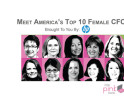
Karen Shirk- CEO and Executive Director of 4 Paws For Ability

Woman’s Best Friend
By Farren Davis
You could say overcoming obstacles is Karen Shirk’s profession – and her company is proof. She’s CEO and executive director of 4 Paws For Ability, a nonprofit organization founded in 2001 to provide trained service dogs to children and adults with disabilities. The company was the first of its kind.
After her diagnosis with a debilitating chronic neuromuscular disease, Myasthenia Gravis at 25, Shirk felt a service dog would be a great provider of companionship and assistance. But because she depended on a ventilator, her requests were repeatedly denied. But there was no giving up. Instead, she adopted her own service dog, Ben, and had him successfully trained. That laid the foundation for so many others who, like her, were denied because of disabilities, finances or accessibility.
The 4 Paws for Ability website states, “Of the 52 million people with disabilities in the US, only 1 percent use service dogs.” Today, Shirk’s company has trained and placed more than 600 dogs with disabled children through her rapidly growing $1.5 million organization, which now spans nationwide. Shirk, no longer dependent on a ventilator, oversees all of it – and raises her four adopted children in the process. Thanks to media attention platforms like the New York Times and Animal Planet (and Little PINK Book!), her story has touched the hearts of people around the world.
Here, she talks to Little PINK Book about battling her illness, keeping up with her company’s success and working everyday to change lives for the better.
PINK: What was your biggest obstacle?
KS: Keeping up with demand. The demand was so great, right from the beginning. Most agencies and organizations develop slowly – we were growing at 300 percent a year. The biggest obstacle was trying to keep up, without going under. We bought one building and outgrew it in six months. It was a very good problem, but it was difficult because I had to know how to hold back and not over- extend. You can go under quickly if you’re growing too fast.
PINK: How do you deal with hearing people tell you “no”?
KS: I’m not a person who takes being told no. Actually, I never have been. If I do, I take it with a grain of salt. It’s been said to me a lot in my life. It depends on where the no comes from, because all nonprofits are governed by a board of directors. I’m lucky that I have an awesome board. I don’t think they’ve ever said no to me.
PINK: What’s your secret to success?
Karen Shirk: Being determined to overcome any obstacles in my way and not letting people tell me it can’t be done. Being diagnosed with Myasthenia Gravis took my entire life from me. I was going to college and working full-time, but I wasn’t able to continue with either. For eight years I really didn’t live at all. I spent a lot of time in the hospital and was very sick. It came to a point where I had to take my life back and take charge. I traveled to Cleveland, where there’s a Myasthenia Gravis specialist. One of the things I did to gain my independence back was get a service dog.
PINK: What inspired you to start your own business?
KS: I wanted to help other people who [were told] getting a service dog was impossible. No service agency would give me a dog because I was dependent at night. They didn’t think I would be able to use the dog to become a productive member of society. They wanted to give [dogs] to people who they felt would be able to return to work. So I ended up training my own with the help of professional trainers.
PINK: How did you transition back to work?
KS: I did it with determination. I got a job working in the field that I love – social services. I was working with autistic and mentally handicapped people. But I was concerned about how many people wouldn’t take that extra step to get a dog and get it trained. I wanted to develop a program where people who were being turned down by the traditional agencies would have a place to go. So I started 4 Paws for Ability.
PINK: How did you make your business stand out?
KS: I found in my research that nobody would work with kids. When I asked them why they said, “Kids can’t handle the dogs. They have disabilities.” I thought, How ridiculous is that? I decided to place the dogs with the parent as the handler with great success. Now there are other agencies across the U.S. working with children because now they know it can be done.

PINK: How big is your team?
KS: I have a staff of about 36 employees. I have three trainers, two assistant trainers, a dog care staff, an office staff, a program development person and an operations director. All together it’s about 36. We own 220 dogs and place about 100 dogs a year.
PINK: How has your background resulted in your success today?
KS: All of my life I’ve wanted to go into social services, because of being in foster care as a child. I went to school and received my degree in social work. I was actually about three-fourths of the way into my Master’s degree before I became ill. Those things helped me in starting 4 Paws. All my adult life, I worked with autistic and disabled children. That gave me the understanding to work with the kids and their families and hired professional trainers to work with the dogs. They know about dog training, but without both sides the organization couldn’t have been successful.
PINK: What is the biggest risk you’ve taken for your career?
KS: When I quit my job to found 4 Paws. A lot of people try to start organizations, especially nonprofits, and don’t get them off the ground because it’s difficult. But we’ve been in this 13 years, and with the exception of the two years when every nonprofit in the U.S. was struggling, we’ve been in the black.
PINK: What is one of your proudest career moments?
KS: When the kids come and meet their dog for the first time and when they graduate (from the training program) two weeks later.
PINK: What are your best balance tips?
KS: That’s a hard one for me because I don’t do that very often. I have to set rules for myself because I have four children. But work to me is not really “work.” I could come in at 7 in the morning and come home at 4, or I could stay until 7 or 8 o’clock at night and it wouldn’t bother me. But I make myself leave by 4:30 because my kids need me at home. My kids come to my work after school, but they need to go home and have quiet time and watch TV before they go to bed, rather than rushing home later. I have to force myself to leave.
PINK: How do you relax or rejuvenate yourself?
KS: I love video games. If I’m overwhelmed with stuff from work, I play a video game. You can let your mind go blank because you’re engrossed in the game. It’s a mindless thing that lets you mentally unwind from whatever’s frustrating at work.
PINK: What are you currently reading?
KS: It’s actually The Hunger Games because my 12-year-old son wanted to read it. I’m very careful with my children, what I let them take in and read. I’m reading the book so I can decide if he can read it. My favorite type of reading is kind of science-fiction.
PINK: What’s one thing most people don’t know about you?
KS: I think most people know everything about me. I have Papillions, which are little 8-pound dogs. I love to dress them up – I have a whole wardrobe for them. They have their own little closet.
PINK: What is one personal goal that you haven’t achieved yet?
KS: All of my goals revolve around 4 Paws. My biggest goal right now is a new facility. Also, I go back and forth, but I’d really like to adopt another child. I never got to have a little girl and dress her up, but I might have to settle for my niece.
PINK: How do you define success?
KS: Achieving a place in your life where you enjoy getting up every morning. Whatever it is you’re doing, you have to enjoy it. If you’re just dreading the workweek, you haven’t achieved a successful life. I don’t consider my work the typical definition of what work is for most. It’s just all a part of my life and I enjoy every single day.
PINK: What legacy do you want to leave?
KS: I want to leave and have this agency go on and in 30, 40 50 years, to still be here and be breaking boundaries.
Recommended
-
Fashion Trends: Four Tips For ...September 1st, 2018
-
Does A Professional Woman Real...August 31st, 2018
-
America’s Top 10 Female ...August 21st, 2013
-
Val DiFebo, CEO, Deutsch New Y...May 20th, 2013
-
Celebrating Black History Mont...May 20th, 2013
















